ENG4U
English, Grade 12
Prerequisite: English, Grade 11, University Preparation
Course Outline
Module 1 Overview: Reading and Writing
Guiding Question:
What are some effective ways to read and write about a literary piece of work?
In this module, you will reflect on the many reasons why people read and write. People read to be informed, to be entertained, to be exposed to new ideas, or to have familiar concepts reinforced. But literature is not merely about analyzing plot or characterization. Most importantly, literature explores the larger world, and the ways people interact and connect with themselves and one another. So even when we read fictional and non-fictional works of literature, we are reading for personal transformation.
Module 2 Overview: Myths and Archetypes
Guiding Question:
How do myths and archetypes inform our deepest connections to ourselves, to others and to society as a whole? What do they reveal about human nature and personality?
In this module, you will explore myths and archetypes. Archetypes are truthful, essential prototypes of characters or events that provide a blueprint for the individual experiences that make up real life. Archetypes can be considered a reflection of what has been called the collective unconscious, a shared body of knowledge, assumptions, and interpretations that an entire culture holds, sometimes without even being aware of it. Similarly, myths are folklores consisting of narratives or stories that serve an important purpose in society, such as foundational tales or origin myths. The main characters in myths are usually gods, demigods or supernatural beings. This module includes a variety of selections and a short novel that highlight different archetypal patterns such as duty, passage of seasons and utopia. As you explore this module, consider ways in which universal themes and patterns create ties and common understanding in society.
Module 3 Overview: Creativity, Mystery, and Intrigue
Guiding Question:
What is metaphorical, or analogical thinking? How is this reflective of creativity, especially for the works you will read in this module?
In this module, you will explore the realm of creativity, mystery and intrigue and their importance to literature. Here we enter the domains of metaphor and symbol. You will read a short story; a narrative poem; some aphorisms; we will conclude the module by delving into Shakespeare’s play, The Tempest. There will be ample opportunities for you to explore your own creativity in relation to the texts studied in this module.
Module 4 Overview: Sense of Self
Guiding Question:
Who am I? What is my sense of self? How do I see myself in relation to others?
In this module, you will read an essay, two poems and a novel, which will explore the dynamics of relationships we have with ourselves and others. The module will revolve around questions of identity, authenticity and the various masks we are conditioned to wear from birth. As you read the novel and the literary selections, consider the nature of the authentic self. How do we suppress our authentic selves? How can we reclaim our sense of identity?
Module 5 Overview: Nature and Environment
Guiding Question:
To what extent are human beings connected to the natural world? How is this dynamic expressed in literature?
In this module, you will read three poems, a reflective essay and two short stories. Here we enter the domain of nature and environment and how we as human beings are intricately connected to the natural world. It is important here to introduce the term, Ecocriticism.
Module 6 Overview: Close Connections
Guiding Question:
Why is conflict so central to a good narrative?
In this final module for the course, you will read a story, two poems and a contemporary drama, all emphasizing the connections we have with ourselves and others. The readings revolve around connectivity and relational dynamics, especially with whom we are in close contact. Such familial relationships can be sometimes challenging; therefore, conflict is important because it not only brings us face to face with our challenges, but also, central to navigating through life itself.


